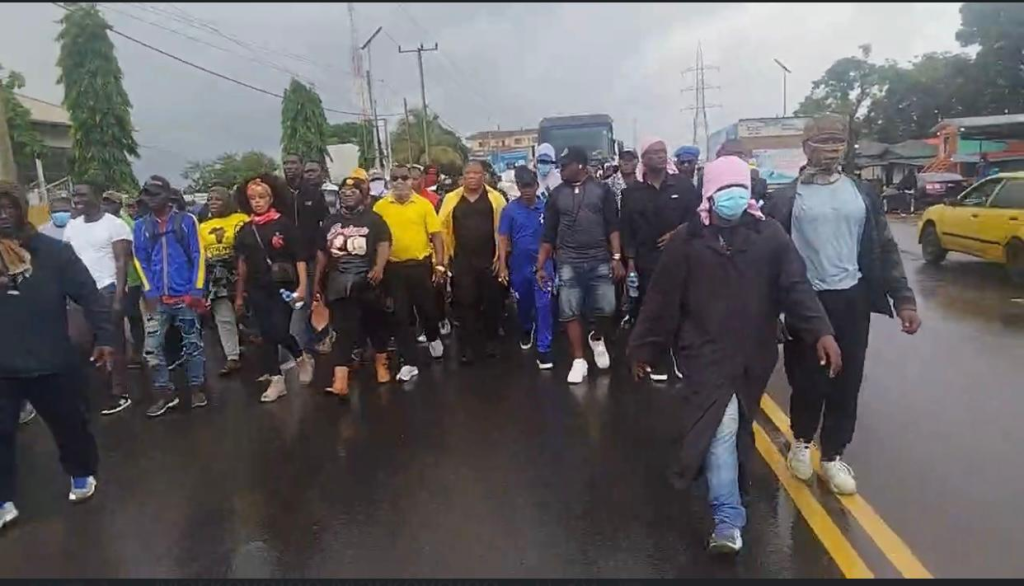By Moses Desire Kouyo
Monrovia, Liberia — The air in Monrovia was thick with urgency on Thursday, as hundreds of Liberians flooded the capital’s streets to demand answers and action from a government they say has fallen short of its promises. Chanting “enough is enough,” the demonstrators marched in peaceful but resolute defiance, led by opposition figure Mulbah Morlu, and unified by a shared sense of betrayal.

It was the most significant protest since President Joseph Boakai assumed office in 2024—a presidency many had pinned their hopes on after years of stagnation, inequality, and the lingering shadows of war. Boakai, a veteran politician with over four decades in public service, had pledged reforms, jobs, and justice. But on the streets of Liberia’s capital, those promises felt distant.
“I am very angry. This is why I am in the street today,” said Victoria Roberts, a small business owner whose voice cut through the crowd like a siren. “How can you say you came to better the lives of the people, and then turn around to remove people from their jobs? Is this the betterment we were promised?”
The crowd was not merely angry—they were organized. Their demands were clear and deeply rooted in Liberia’s recent past. At the heart of their call was justice: a renewed cry for the establishment of a long-promised war crimes court to hold accountable those responsible for the atrocities committed during Liberia’s bloody civil wars between 1989 and 2003.
“We, the motorcyclists, we want a war crimes court,” said Dougis Smith, a young protester wrapped in a red headband. “And it should not be only for Prince Johnson. ‘General Butt Naked’ must face justice too.”

The names referenced, once feared warlords, now politicians or religious figures—are reminders of Liberia’s unfinished reckoning with its past. Protesters voiced anger that many of those implicated in war-era atrocities continue to live freely, some even holding political office or walking with impunity through the same communities they once terrorized.
Musu Dennis, another protester, spoke with quiet intensity. “Joseph Boakai was elected because of his experience. Forty years in public service. But where is that experience now? Our suffering continues. He must use that experience for the people, not against them.”
The crowd also raised concerns about alleged politically motivated dismissals and what they described as a worrying erosion of the rule of law. From nurses to civil servants, many claim they were removed not for incompetence, but for not pledging loyalty to the ruling administration.
As the procession moved peacefully toward the Executive Mansion to present their petition, Monrovia’s usual bustle slowed to a near halt. Shops remained shut. Schools dismissed students early. Many citizens opted to stay indoors, wary of the volatility that often shadows public demonstrations in post-war Liberia.
No violence was reported, but the silence from President Boakai’s office was equally loud. At the time of filing this report, the government had yet to issue a formal response to the protestors’ demands.
For a nation still nursing the scars of conflict, Thursday’s protest was more than political theatre—it was a cry for memory, for dignity, for truth. In the words of one elderly marcher, “Liberia cannot move forward until we face what we have refused to confront.”
And until that day comes, the streets will keep speaking.



